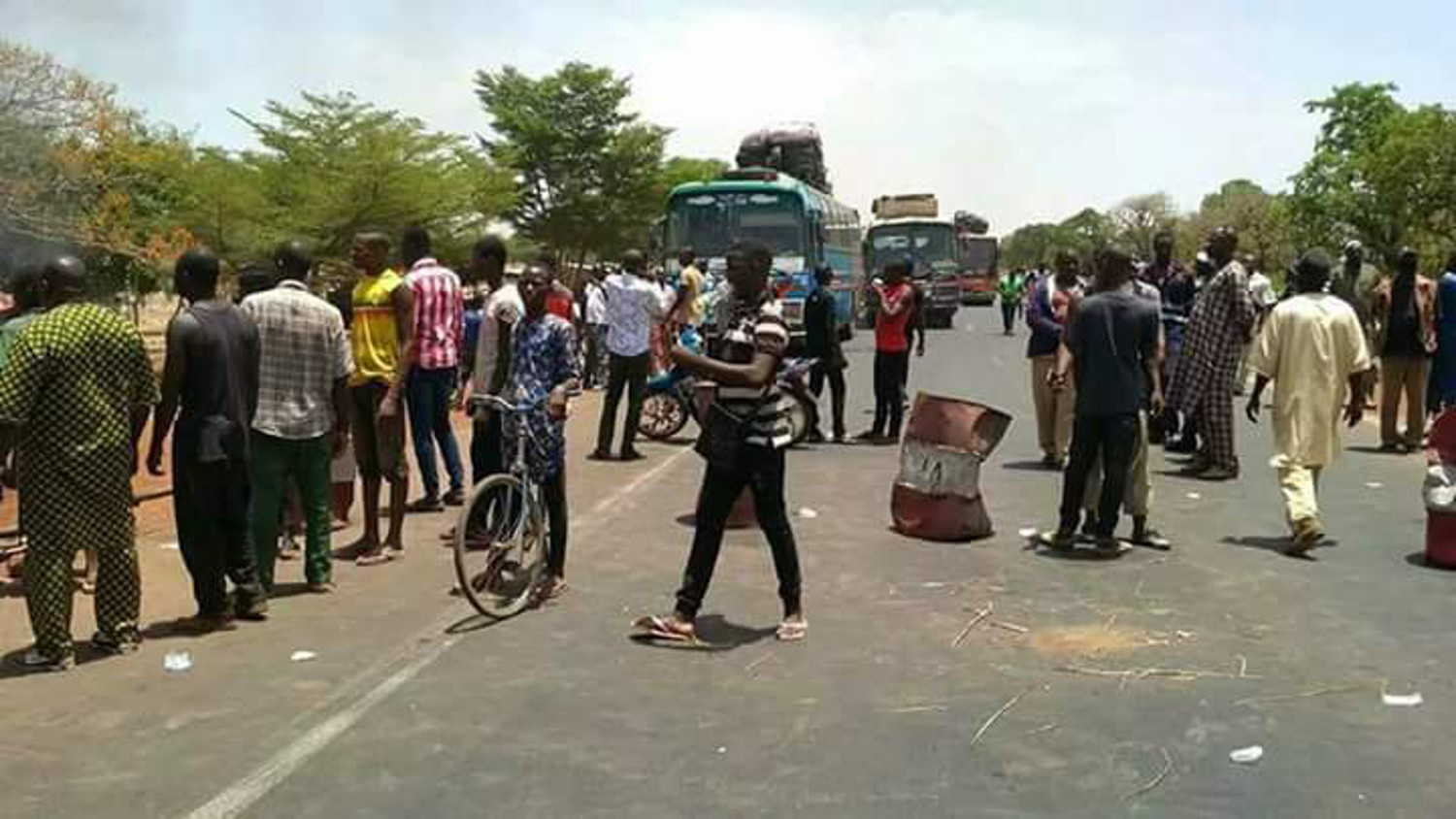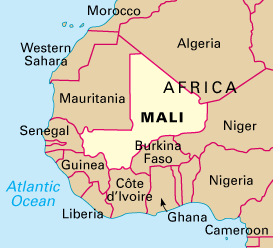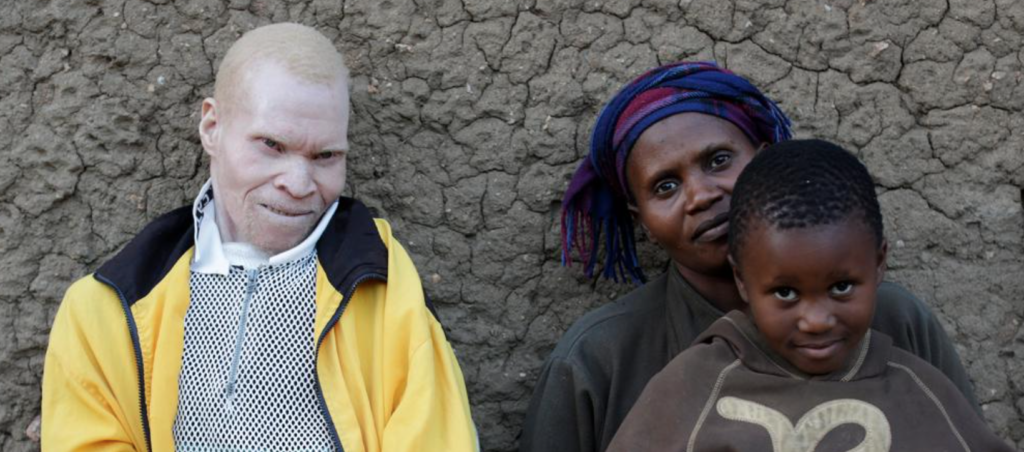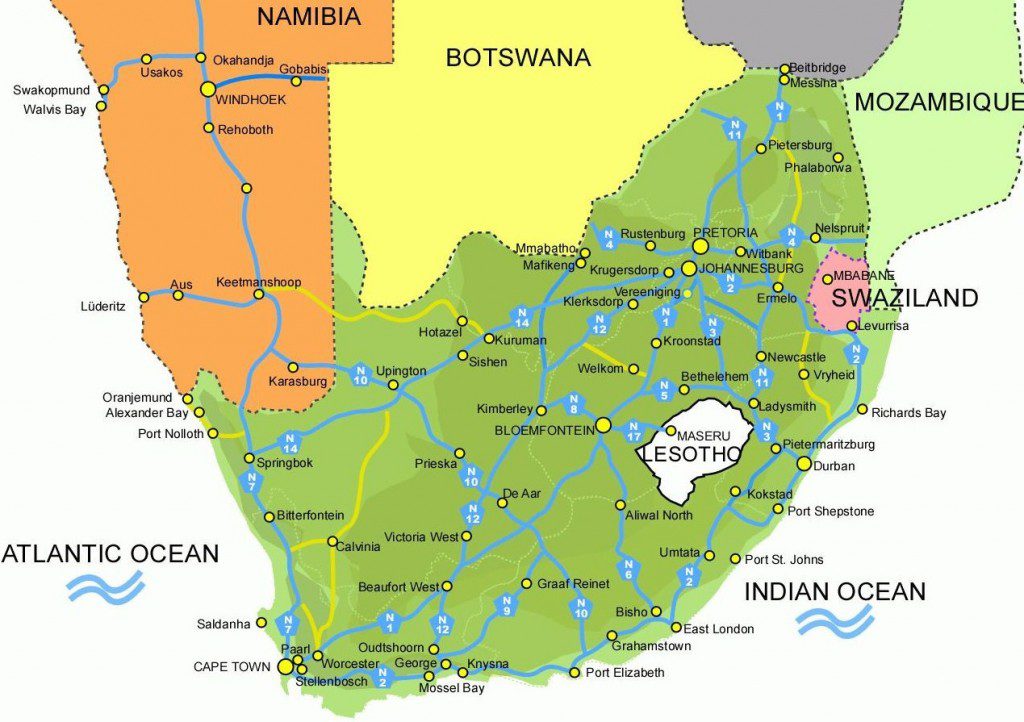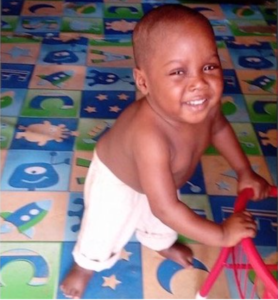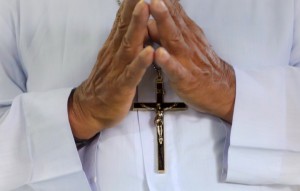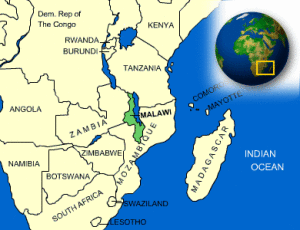Reports on murdered albinos and ritual killings in Mali are rare. When living in Mali in the 1980s I was told by Malians about rumors related to disappeared albinos during the presidency of Modibo Keita (1960 – 1968). True or not true? We may never know. However, the BBC report based on an article of Malian Studio Tamani reproduced below shows that still in 2018 albinos do not live without fear in Mali, notably when elections are near. (webmaster FVDK)
Published: May 15, 2018
BBC News, Africa
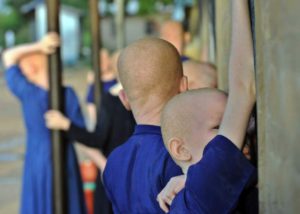
Albino children in parts of Africa are targeted by groups who believe their body parts bring luck (stock image)
Angry villagers have set fire to police headquarters after a five-year-old girl with albinism was abducted and killed by armed men in Mali.
Djeneba Diarra, who lived in a village in Fana, 125km (78 miles) north of the capital Bamako, was taken from the courtyard where she was sleeping with her mother and sister in the early hours of Sunday morning.
The little girl’s headless body was later found beside the mosque.
“We demand justice. Her head was taken. This is a ritual crime,” activist Mamadou Sissoko told news agency AFP after going to the scene.
Witnesses said angry villagers then partially burned down the paramilitary police headquarters. Shops remained closed for most of Monday as protests continued, according to Studio Tamani [in French]. See below (article in French included).
There are concerns the killing may be linked to Mali’s presidential election, which is taking place at the end of July.
There is a belief among some groups in parts of Africa that potions made from the body parts of people with albinism can bring good luck and wealth.
Mr Sissoko said: “Every time there are elections, we become prey for people who want to make ritual sacrifices. This is not the first time this has happened in Fana.
“The state needs to take up its responsibilities.”
Source: BBC News Africa, May 15, 2018 (16:04)
Albino girl, five, abducted and killed in Mali
Related article: Protest in Fana: Calm after “the storm”
Manifestations à Fana : le calme après “la tempête”
Le calme est revenu à Fana, localité située une centaine de kilomètres de Bamako après la violente manifestation de ce dimanche 13 mai. Le mouvement de colère faisait suite à l’assassinat, la veille, d’une fille atteinte d’albinisme. Elle a été retrouvée égorgée. Les manifestants ont incendié la brigade de gendarmerie et plusieurs bars, avant de poser des barricades sur les principales voies de la ville.
Un important dispositif de sécurité était visible ce lundi 14 mai matin à Fana. Les magasins sont restés fermés pour la plupart, malgré le calme précaire qui règne dans la ville. Tout a commencé samedi 12 mai dernier lorsqu’un homme s’est introduit nuitamment dans la famille de la petite Ramata Diarra pour l’enlever avant de disparaître dans la nature. Quelques heures plus tard, le corps de la fillette décapitée a été retrouvé.
L’acte a provoqué la colère des habitants de Fana. Des dizaines de femmes et des jeunes sont sortis pour manifester, mettant à sac la gendarmerie et d’autres bâtiments administratifs. Les manifestants ont également bloqué toutes les voies principales dans la ville. Cet assassinat est le deuxième en moins d’un mois à Fana. Une femme et son enfant ont été également assassinés il y a quelques semaines dans cette même localité. L’Association pour la promotion et l’insertion sociale de l’enfant atteint d’albinisme « SOS ALBINOS » a condamné l’acte et décide de porter plainte contre X auprès du Procureur de Koulikoro. L’association appelle les autorités à retrouver les auteurs de ce crime et les traduire devant les tribunaux.
Des enquêtes ont été ouvertes pour retrouver les auteurs de ce crime. Selon le maire de la localité, des suspects ont été identifiés et les investigations sont en cours. Toutefois la famille de la victime appelle les autorités régionales à plus de protection et réclame que justice soit faite.
Oumar Sidi Coulibaly proche de la victime :
(lien ne marche pas, cliquez sur l’original ‘Source’ s.v.p.)
L’association malienne pour la protection des albinos décide de porter plainte contre les auteurs avec l’accord de la famille de la victime. Selon elle, à l’approche des élections, “les albinos sont ciblés pour des sacrifices”. Les responsables de l’association exigent que les enquêtes soient accélérées afin de punir les coupables.
Mahine Koita dit Albihi Secrétaire général de l’Association pour la protection des albinos :
(lien ne marche pas, cliquez sur l’original ‘Source’ s.v.p.)
Source : Studio Tamani : Manifestations à Fana : le calme après “la tempête” (publié le 14 mai 2018)

